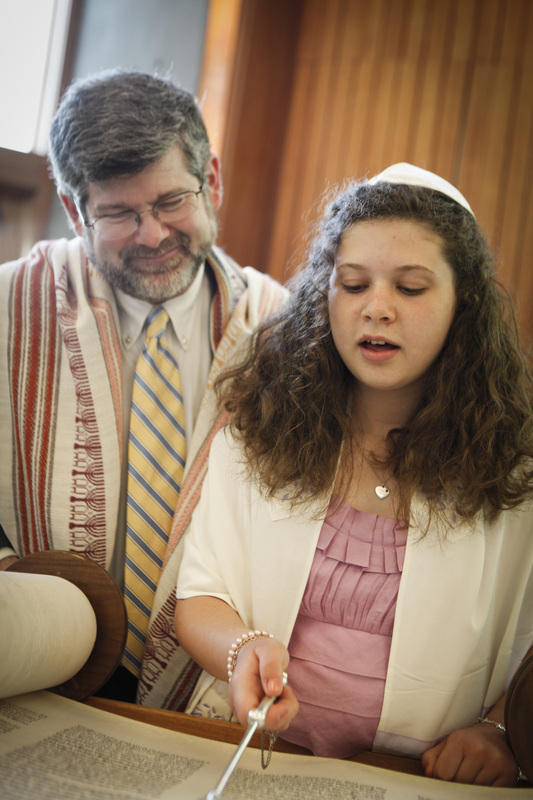I know that there are rabbis who do not love working with bar and bat mitzvah students. Tutoring twelve-year-olds is time consuming and it can be frustrating. I know that there are rabbis who do not have time to work with these students. In large congregations it is a duty that gets passed along to an assistant rabbi, to a cantor, or to someone whose sole job is to tutor. I love it. I am blessed to have the time to do it. I find the there is a certain wisdom in Jewish tradition of celebrating a major lifecycle event around the time when a child turns thirteen. They are just at the point when the world is beginning to make sense to them. As they enter early adolescence, they find that they are allowed to think for themselves, to form their own opinions, and to look for ways of being their own original person. It is a great thing to witness. |
The expression, "d'var Torah," literally means "a word of Torah," and it is an apt name for that small kernel of insight that a good d'var Torah is meant to convey. A d'var Torah is more than a synopsis of the portion, as it needs to have a flair of originality or a different perspective. It is not a sermon, but, perhaps the beginning of something that might become a sermon. In short, a d'var Torah is the perfect vehicle for twelve-year-olds to strike that brief, momentary pose in which they differentiate themselves from the rest of the world and show what it is they've got.
I find a predictable pattern, like the arc of a developing story, that students follow as they prepare a d'var Torah. They begin with excitement about some fixed idea they see in the Torah portion. Sometimes there is something that resonates with their sense of right and wrong, like Leviticus' declaration, "You shall not stand idle upon the blood of your neighbor," and they want to write about responsibility. Sometimes they are annoyed or angered by something in the Torah that they want to reject, like Exodus' death penalty for children who insult their parents, and they want to write about how judgmental adults can be toward children. Sometimes they just feel attracted to a powerful image, like the giving of the Ten Commandments or the parting of the Red Sea, and they want to write about how awesome God is. (Yes, they like to use that word).
The initial excitement about what they want to say leads to a great flurry of sentences that go all over the place. They get passionate and make bold, beautiful statements about how they see the world and how things ought to be.
And then I ask, "So what is this Torah saying about you? When has this Torah you're telling me about been a part of your life?" It does not happen every time—but it happens often enough—that the child looks at me with wide eyes as if to say, "Me? The Torah is about me? What do I have to do with it?" And that is when we really begin.
I ask them to remember an experience from their own life that relates to their fixed idea. I ask them to think about a time when they amazed themselves, or when they disappointed themselves. I ask them to put themselves into the text and tell their own story that illustrates what they see in the Torah—the time when they were the one who stood idly by another person's suffering, the time when they felt small because of someone else's unkind judgment, and the time when they felt transformed by God's awesome presence.
For an almost-thirteeen-year-old to capture such a moment from his or her brief life is enough. It is enough to make them feel that they have said something that is all their own, and it is enough to make them feel—for a long time, I hope—that the Torah is theirs, too. The moment of insight is followed by a few paragraphs of "thank yous" to their parents, to their siblings, to their teachers, to the cantor, and to the rabbi. That's enough for me, too.
I love to help those almost-thirteen-year-olds write their word of Torah. Of course, it is also because I myself love to write a word of Torah. But there is something wonderful about watching someone else do it, someone who is discovering it for the first time.
Other Posts on This Topic:
Funerals
Ten Thoughts About Being a Congregational Rabbi


 RSS Feed
RSS Feed
